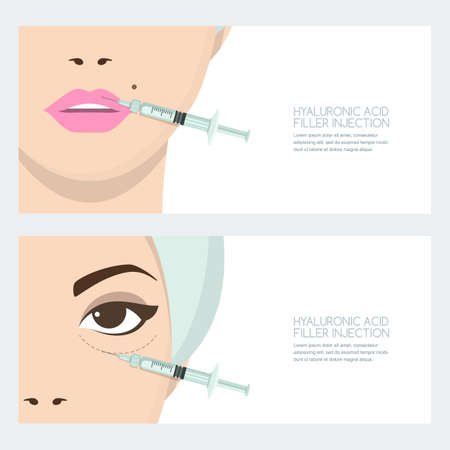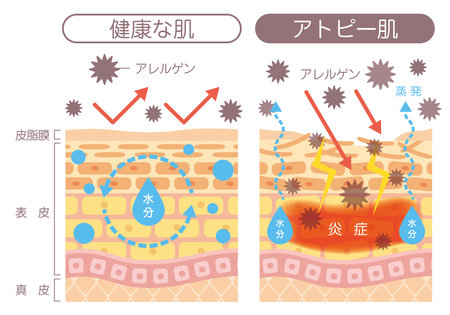Introduction to Medical-Grade Skincare
Medical-grade skincare has become a cornerstone in modern dermatology, offering advanced solutions for individuals seeking clinically proven results. Unlike over-the-counter products, medical-grade formulations are developed with higher concentrations of active ingredients and are often supported by robust scientific research. Their efficacy is backed by clinical trials, making them a preferred choice for addressing a wide range of skin concerns including ageing, pigmentation, and acne.
In the UK, awareness and demand for effective skincare have surged, placing brands like Obagi and ZO Skin Health at the forefront of the industry. These brands distinguish themselves not only through their potent ingredient profiles but also their focus on evidence-based outcomes and professional supervision. For British consumers, who value both safety and visible improvements, choosing between these two leaders can be pivotal in achieving optimal skin health.
The rise of medical-grade skincare underscores its importance within dermatology clinics and aesthetic practices across the UK. Patients and practitioners alike seek trustworthy brands that combine innovative science with rigorous safety standards. Obagi and ZO Skin Health have built strong reputations in this regard, standing out as reliable options for those aiming to transform their skin under expert guidance.
Brand Backgrounds: Obagi and ZO Skin Health
When comparing two of the most prominent medical-grade skincare brands—Obagi and ZO Skin Health—it is essential to understand their origins, core philosophies, and their standing among British skincare professionals. Both brands have shaped the landscape of advanced skin health, yet each brings unique credentials and a distinctive approach to clinical skincare.
A Brief History of Obagi
Founded in 1988 by Dr. Zein Obagi, a board-certified dermatologist, Obagi Medical was one of the first brands to focus on transforming skin at a cellular level. The company quickly established itself as a pioneer in prescription-strength formulations designed to address issues such as hyperpigmentation, ageing, and acne. Obagi’s ethos centres on scientifically-backed protocols that aim for measurable results under the supervision of trained clinicians. Over the years, its products have become staples in dermatology clinics and aesthetic practices across the UK, earning endorsements from leading consultants and practitioners alike.
The Rise of ZO Skin Health
After parting ways with his namesake brand, Dr. Zein Obagi launched ZO Skin Health in 2007. This newer venture was built upon decades of research and experience, with an emphasis on optimising skin health rather than simply correcting problems. ZO Skin Health blends innovative technologies with potent active ingredients to deliver comprehensive solutions that bridge daily skincare and therapeutic treatments. The brand has gained significant traction within the UK’s professional circles for its progressive approach to maintenance and prevention, alongside its results-driven protocols.
Comparing Brand Ethos and Professional Endorsement
| Obagi Medical | ZO Skin Health | |
|---|---|---|
| Founded | 1988 | 2007 |
| Founder | Dr. Zein Obagi | Dr. Zein Obagi |
| Core Philosophy | Treats skin at a cellular level; focuses on correction and transformation. | Focuses on overall skin health; emphasises prevention, maintenance, and innovation. |
| Presence in UK Clinics | Widely used by dermatologists and aesthetic doctors; known for trusted protocols. | Rapidly growing presence; praised for forward-thinking regimens among British professionals. |
| Physician Endorsement | High—considered gold standard for clinical outcomes. | High—recognised for modern science-led approaches. |
The British Perspective on Medical-Grade Skincare Brands
Within the UK’s discerning aesthetics market, both Obagi and ZO Skin Health are held in high regard by practitioners who demand efficacy supported by rigorous evidence. While some professionals favour Obagi for its heritage and established clinical track record, others are drawn to ZO Skin Health’s commitment to cutting-edge research and holistic skin management. Ultimately, their shared legacy—rooted in physician leadership—makes them go-to choices for patients seeking transformative results under expert guidance.

3. Core Product Lines and Key Ingredients
When comparing Obagi and ZO Skin Health, it is essential to focus on their core product lines and the signature ingredients that set them apart in the realm of medical-grade skincare. Both brands cater to concerns frequently highlighted by British patients, such as pigmentation, premature ageing, acne, and compromised skin barriers due to environmental stressors typical in the UK climate.
Obagi: Flagship Systems and Hero Ingredients
Obagi’s flagship range is the Obagi Nu-Derm System, which is widely recognised across British clinics for its efficacy in transforming dull, uneven skin tone and reducing hyperpigmentation—a common complaint among patients affected by limited sunlight and environmental pollution. The Nu-Derm System features prescription-strength hydroquinone, a gold-standard ingredient for tackling melasma and stubborn dark spots. Additionally, Obagi integrates retinol and L-ascorbic acid (vitamin C) in its Professional-C line, which appeals to patients seeking antioxidant protection from urban pollution while encouraging collagen production for firmer skin.
ZO Skin Health: Cutting-Edge Formulations for Modern Lifestyles
In contrast, ZO Skin Health places emphasis on prevention as well as correction. Its signature Daily Power Defense serum leverages DNA repair enzymes, peptides, and antioxidants to address early signs of ageing aggravated by fluctuating weather and high-stress environments typical in British cities. ZO’s Brightalive Skin Brightener offers a hydroquinone-free approach to pigmentation, using advanced brightening technologies like niacinamide and tranexamic acid—making it an appealing choice for those seeking alternatives to prescription ingredients.
Addressing British Skincare Concerns
Both brands offer robust solutions tailored to concerns prevalent among UK patients: Obagi’s prescription-based systems deliver targeted results for severe pigmentation and sun damage, while ZO Skin Health excels in proactive barrier support and non-hydroquinone brightening for sensitive or maintenance-focused clients. Ultimately, the choice between these two leaders often comes down to individual skin needs, tolerance levels, and the preference for prescription versus non-prescription actives.
4. Clinical Efficacy and User Experience
Comparative Analysis of Clinical Studies in the UK
When comparing Obagi and ZO Skin Health, it is crucial to examine published clinical studies as well as real-world results observed in UK-based patients. Both brands are recognised for their medical-grade formulations, but their clinical efficacy can differ depending on the skin concern addressed.
| Condition | Obagi (Key Findings) | ZO Skin Health (Key Findings) |
|---|---|---|
| Pigmentation (Melasma, Hyperpigmentation) | Clinical trials highlight significant improvement in pigmentation with Obagi’s Nu-Derm System, particularly when paired with hydroquinone. Many UK dermatologists report visible brightening within 12 weeks. | Studies indicate ZO Skin Health’s Brightalive and pigment-control products also improve uneven tone, with some users experiencing fewer side effects due to non-hydroquinone alternatives. |
| Ageing (Fine Lines, Wrinkles) | User feedback and clinical evidence show enhanced skin texture and reduced wrinkles with consistent use of Obagi’s retinol and vitamin C formulations. | ZO Skin Health offers advanced retinol products combined with antioxidants, with practitioners noting improved firmness and resilience after 8–10 weeks of regular application. |
| Acne | The CLENZIderm M.D. system is highly rated by both patients and practitioners for moderate to severe acne cases, often recommended by UK clinics for long-term management. | ZO Skin Health’s complex approach uses multi-step exfoliation and anti-inflammatory ingredients; British patients report reductions in breakouts and post-acne marks. |
Patient Reviews and Practitioner Feedback
User experiences across the UK reflect a high satisfaction rate with both brands. However, preferences often depend on individual needs, product tolerability, and desired speed of results. Below is a summary based on aggregated reviews:
| Aspect | Obagi | ZO Skin Health |
|---|---|---|
| Tolerability | Mild irritation common during initial use; adaptation phase expected especially with active ingredients like hydroquinone or retinol. | Slightly gentler options available, especially for sensitive skin or those seeking hydroquinone-free regimes. |
| Visible Results Timeline | Noticeable improvements in pigmentation and clarity within 6–12 weeks; consistent compliance required for optimal effect. | Some users report early textural benefits as soon as 4 weeks; full results typically seen after 8–12 weeks depending on protocol adherence. |
| Professional Endorsement (UK) | Widely prescribed by dermatologists for targeted concerns such as melasma or photoageing; long track record in British clinics. | Increasingly popular among aesthetic practitioners for comprehensive anti-ageing programmes; valued for modern formulations and customisation options. |
User Experience: A British Perspective
British consumers often appreciate the structured protocols provided by both brands, though some prefer the flexibility offered by ZO Skin Health’s modular systems. Obagi is favoured for its strong scientific heritage and proven outcomes, particularly in pigmentation management. Ultimately, patient satisfaction hinges on appropriate selection based on skin type, lifestyle, and practitioner guidance.
5. Accessibility and UK Regulatory Considerations
When comparing Obagi and ZO Skin Health within the UK market, accessibility and regulatory compliance are paramount for consumers seeking medical-grade skincare. Both brands have established their presence through authorised distributors, licensed clinics, and certified practitioners, ensuring that patients receive genuine products with professional guidance. Unlike over-the-counter skincare available in high street shops, Obagi and ZO Skin Health often require a consultation with a qualified medical professional before purchase—especially for prescription-only formulations such as those containing higher concentrations of hydroquinone or retinoids.
The purchasing process for both brands typically involves in-person assessments at registered clinics or via reputable online platforms partnered with UK-registered practitioners. This approach not only guarantees product authenticity but also aligns with the Medicines and Healthcare products Regulatory Agency (MHRA) standards governing medical devices and prescription skincare. Both Obagi and ZO Skin Health rigorously adhere to these guidelines, ensuring their formulas meet safety, labelling, and efficacy requirements set forth by UK law. Additionally, cosmetic elements within their product lines comply with the UK Cosmetic Products Regulation, reflecting each brand’s commitment to consumer safety and transparent marketing.
For UK-based clients, it is crucial to avoid unauthorised online resellers, as counterfeit or improperly stored products may pose health risks and lack regulatory oversight. Instead, sourcing through official channels not only supports regulatory compliance but also provides access to aftercare advice—an essential component of medical-grade skincare regimes. In summary, while both Obagi and ZO Skin Health are accessible across the UK, purchasing from accredited providers ensures adherence to strict medical and cosmetic regulations designed to protect patient wellbeing and deliver effective results.
6. Which Brand is Right for You?
When it comes to choosing between Obagi and ZO Skin Health, understanding your unique skin concerns and lifestyle needs is crucial. Both brands offer advanced, medical-grade formulations, yet each has distinct strengths that may suit different individuals.
Assessing Your Skin Concerns
If you are dealing with specific issues such as hyperpigmentation, melasma, or severe acne, Obagi’s targeted systems—particularly the Nu-Derm line—are highly regarded among UK dermatology professionals. On the other hand, ZO Skin Health is often recommended for those seeking preventative care, maintenance of healthy skin, or comprehensive anti-ageing regimens.
Lifestyle Considerations
Your day-to-day routine can also influence your choice. Obagi routines are sometimes more structured and may require a higher level of commitment, which suits those comfortable with multi-step regimens. In contrast, ZO Skin Health offers flexible protocols that can be integrated more easily into busy schedules—ideal for those who value convenience without compromising results.
Professional Consultation in the UK
Ultimately, the guidance of a qualified skincare professional is paramount. Clinics and medical aesthetics practitioners across the UK are experienced in both brands and can provide tailored recommendations following a thorough skin assessment. This ensures that your chosen products address your concerns effectively while aligning with your expectations and lifestyle.
In summary, both Obagi and ZO Skin Health offer exceptional results when used under expert supervision. By considering your specific skin challenges, daily habits, and seeking advice from accredited British skincare specialists, you’ll be well-placed to make an informed decision that supports long-term skin health and confidence.


